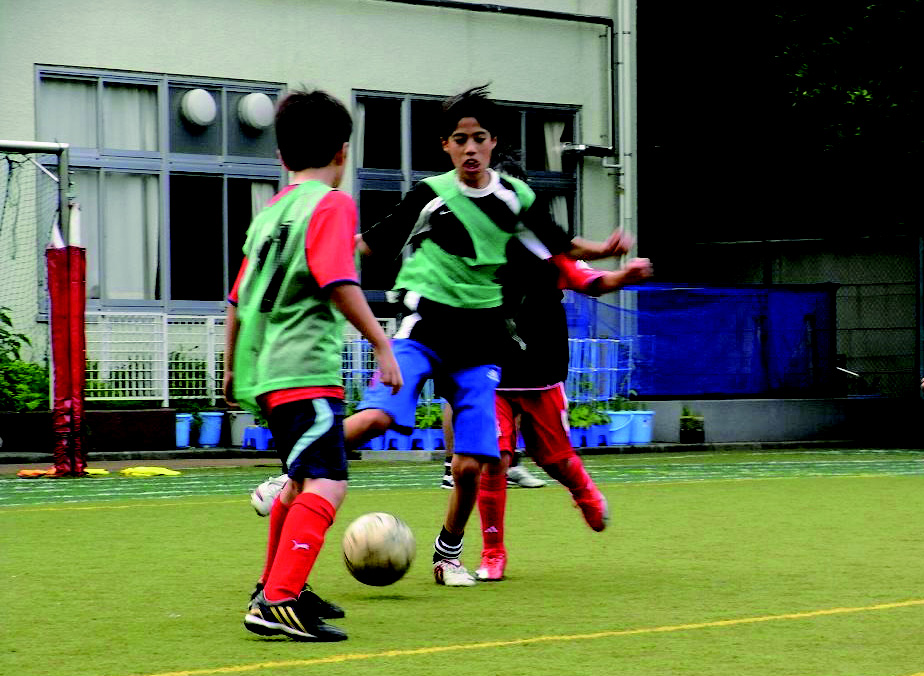by Brett Iimura and Iona Macnab
To everything, there is a season…except for kids’ sports in Japan, which are usually run year-round. School clubs have open membership, but an interested student can usually join only at the beginning of the school year, which is in April. Private club teams require a try out, usually held once a year in January. Local groups geared toward younger, preschoolaged children may have shorter terms lasting a few weeks or months. Your ward office may also have information on occasional play-with-the- pros days in your area. Entry to these is often by lottery.
Private club teams, as well as teams and classes run by schools in Japan, are known to require a major commitment from the player and his or her family, which can greatly impact the family’s lifestyle. Rules are often copious and discipline can be severe. Attention is paid to respect for team members, coaches, and even the ground on which the game is played. This is fostered by players setting up and clearing the field themselves, taking turns caring for the equipment, and conducting themselves appropriately whenever and wherever they are wearing the team uniform. Diligence and exemplary behavior becomes second nature to these kids.
The national playoff game of the All Japan High School Soccer Tournament, televised every January, is closely watched by soccer fans of all ages. Admission to junior and senior high schools known for strong soccer teams is often sought by dedicated players. The Club Youth Football Tournaments held every spring and fall are also popular and competitive. For information on Japanese club teams in your area contact the Japan Club Youth Football Federation: www.jcy-football.com/affiliation.html (Japanese only).
Most Japanese teams tend to concentrate on mastering fundamentals and fostering group ethic rather than encouraging individual, stand-out players. Although often more reminiscent of army drills than lighthearted practice and play, there are a few clubs dotted around Tokyo that focus more on raising responsible and decent kids through enjoyable sports practices. Parental involvement varies and may include rotating being on-duty at practices to take care of minor injuries and broken egos, taking care of the books, chaperoning for games away, and even serving tea to the visiting team’s coaches. Some more family-oriented teams for elementary school-aged kids periodically hold parent-child soccer events, so the whole family can kick the ball around together. Observing a practice can give parents a feel for the coaching style and overall focus and atmosphere of any particular team.
All of the above are, of course, run in Japanese. If you are seeking an English environment with more flexible enrollment and a focus on fun, there are several options. The British Football Academy (BFA) (www.footyjapan.com/bfat) is the preeminent soccer organization in Kanto. Classes are held at various locations around Tokyo and Yokohama for kids 3–15 years of age, and kids can join at any time. All classes are taught by dedicated, qualified coaches who encourage teamwork, communication, and friendship among children of all cultures and skill levels in a tremendously fun-filled soccer environment. Their classes run regularly during the typical international school calendar year, and special soccer camps are held during school vacations. A recent addition to their class line-up is the BFA Select class for 13–15 year olds, which focuses on professional game conditioning and includes more competitive matches for handpicked players.
The Tokyo American Club (www.tokyoamericanclub.org) offers seasonal sessions for baseball, softball, basketball, and soccer, among others, usually held at various international schools in the Tokyo area. YC&AC (www.ycac.or.jp) runs a variety of children’s programs, including soccer, baseball, rugby, and tennis, throughout the year.










